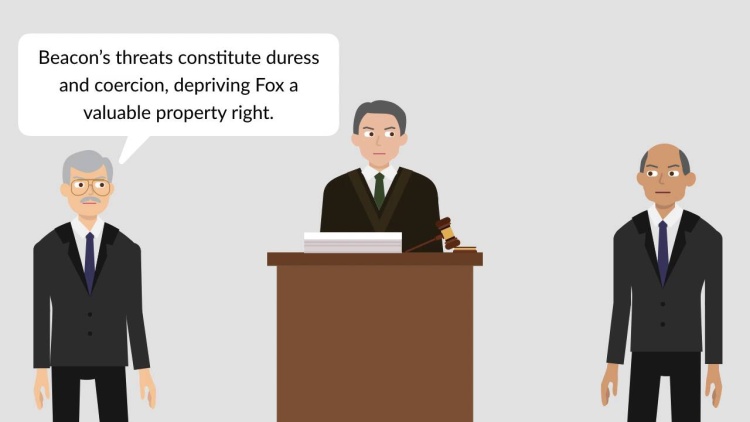Beacon Theatres, Inc. v. Westover
United States Supreme Court
359 U.S. 500, 79 S. Ct. 948, 3 L. Ed. 2D 988 (1959)
- Written by Alexis Tsotakos, JD
Facts
After Beacon Theatres, Inc. (plaintiff) built a drive-in movie theater in California, it notified Fox West Coast Theatres, Inc. (Fox) that it was concerned that Fox’s practice of forming “first run” clearance contracts, i.e., contracts that gave certain theaters in the area exclusive rights to show new movies, was violating antitrust laws. Before Beacon could file suit, Fox filed a complaint for declaratory relief, asking the district court for a declaratory judgment that Fox’s clearance contracts were not in violation of antitrust laws and requesting a preliminary injunction to prevent Beacon from filing suit. Beacon filed a counterclaim alleging that Fox was violating the Sherman Antitrust Act and demanded a jury trial. The district-court judge, Judge Westover (defendant), found that the issues in the case were basically equitable and directed that the issues be tried in front of the district court before being submitted to a jury. Beacon appealed, and the court of appeals upheld the order, finding that Fox’s complaint was, in part, making a plea for injunctive relief, which was equitable relief within the purview of the district judge, and the complaint should be read as a whole. Beacon appealed, and the United States Supreme Court granted certiorari.
Rule of Law
Issue
Holding and Reasoning (Black, J.)
Dissent (Stewart, J.)
What to do next…
Here's why 907,000 law students have relied on our case briefs:
- Written by law professors and practitioners, not other law students. 47,100 briefs, keyed to 996 casebooks. Top-notch customer support.
- The right amount of information, includes the facts, issues, rule of law, holding and reasoning, and any concurrences and dissents.
- Access in your classes, works on your mobile and tablet. Massive library of related video lessons and high quality multiple-choice questions.
- Easy to use, uniform format for every case brief. Written in plain English, not in legalese. Our briefs summarize and simplify; they don’t just repeat the court’s language.





